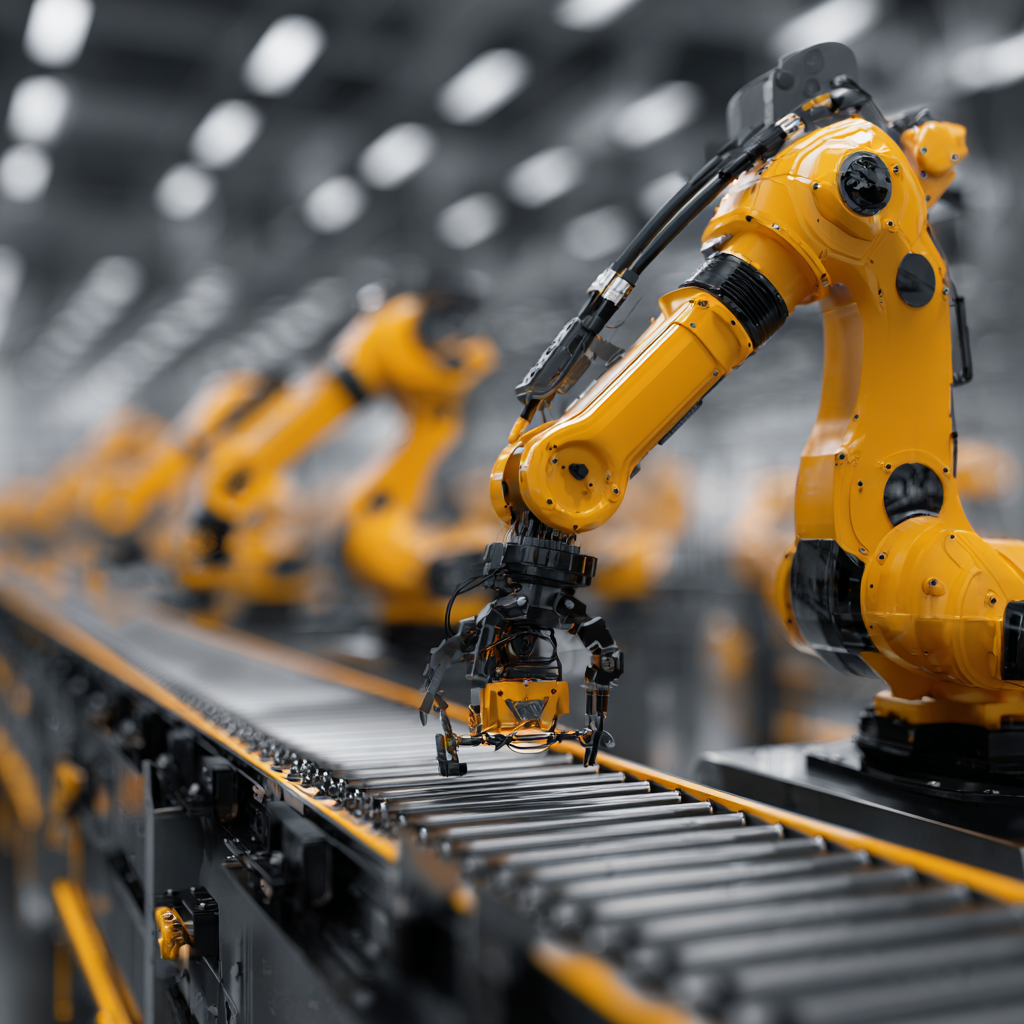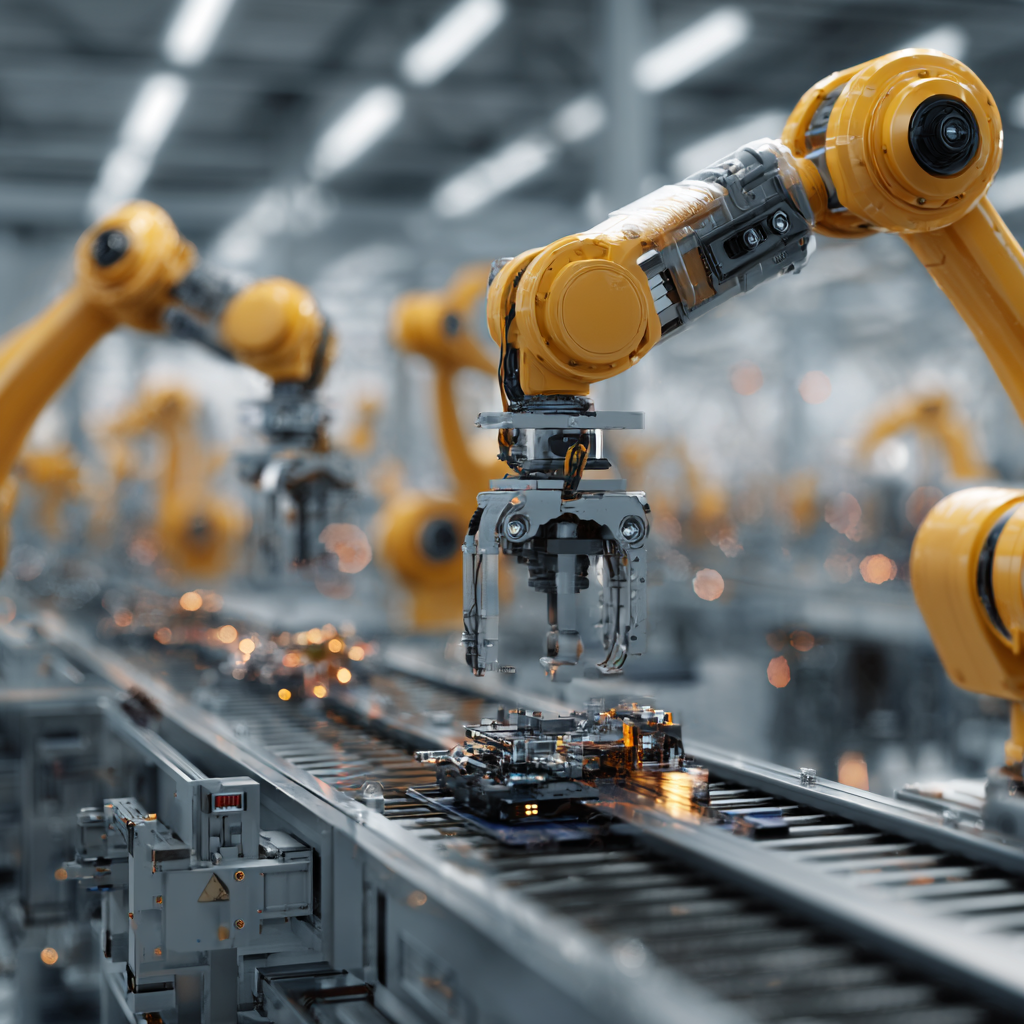

In the ever-evolving landscape of global procurement, manufacturers have emerged as pivotal players in driving efficiency and innovation. According to a report by McKinsey, the manufacturing sector is expected to contribute an additional $327 billion to the global economy by 2025, highlighting the critical role these firms play in procurement strategies. As businesses increasingly seek to streamline operations and cut costs, aligning with the right manufacturers can lead to significant advantages, including improved supply chain resilience and enhanced product quality. Moreover, a recent survey by Deloitte indicates that over 70% of organizations are prioritizing partnerships with manufacturers that leverage advanced technologies, demonstrating the transformative impact of digital solutions on procurement success. In this blog, we will explore the 10 best manufacturers revolutionizing global procurement in 2023 and the benefits they bring to businesses worldwide.

In 2023, global procurement is witnessing a transformation led by innovative manufacturers who prioritize sustainability, agility, and advanced technology. These manufacturers are not only meeting the demands of modern consumers but also addressing the complexities of supply chains disrupted by various global challenges. A key characteristic of these innovators is their ability to leverage data analytics, providing insights that enhance decision-making and streamline procurement processes.

Tip: To stay competitive, businesses should invest in data-driven technologies that enable real-time visibility across their supply chains. This ensures swift adaptation to market changes and fosters stronger supplier relationships.
Another defining trait of innovative manufacturers is their commitment to sustainability. They implement eco-friendly practices in their production processes and supply chains, which not only attract environmentally-conscious consumers but also comply with stringent regulations. By adopting circular economy principles, these manufacturers are reducing waste and enhancing resource efficiency.
Tip: Companies should assess their procurement strategies and consider incorporating sustainable materials and processes. Engaging with suppliers who prioritize sustainability can also enhance brand reputation and loyalty among consumers.
In today's rapidly evolving market, supply chain transparency has emerged as a critical focus for manufacturers and procurement leaders alike. According to a McKinsey report, companies with transparent supply chains can expect a 15-20% improvement in their operational efficiency. This emphasizes the importance of clear visibility into sourcing, production, and distribution processes. As global procurement becomes more complex, fostering transparency is essential to mitigate risks and enhance overall performance.
Furthermore, a study by the World Economic Forum highlights that organizations prioritizing supply chain transparency experience not only better compliance with regulations but also increased trust among stakeholders. In fact, 78% of consumers are willing to pay more for products that come from sustainable and transparent sources, demonstrating a tangible market advantage for manufacturers committed to ethical procurement practices. Such insights reinforce the notion that integrating advanced technologies and data analytics into supply chain management is not merely an option but a necessity for manufacturers aiming to thrive in a competitive landscape.

In 2023, technological advancements have dramatically transformed the manufacturing sector, making the procurement process significantly more efficient and strategic. According to a recent report by McKinsey & Company, nearly 80% of procurement professionals believe that digital technologies have improved their ability to collaborate with suppliers, while 74% stated that automation tools have boosted their efficiency by reducing the time spent on repetitive tasks. This shift towards automation and data analytics has enabled manufacturers to make more informed decisions about supplier selection, ultimately leading to enhanced performance and innovation.
Additionally, the rise of AI-driven tools and blockchain technology is revolutionizing the way manufacturers manage their supply chains. A report from Deloitte highlights that investing in AI and machine learning can provide a 10-15% reduction in operational costs for manufacturers, while blockchain enhances transparency and traceability throughout the procurement process. This not only mitigates risks associated with supply chain disruptions but also fosters stronger, more reliable partnerships. As these technologies continue to evolve, they are set to redefine the landscape of global procurement, empowering manufacturers to thrive in an increasingly competitive environment.
In 2023, sustainability practices among manufacturers have gained paramount importance, with a significant shift in responsibility towards ethical procurement and environmental stewardship. According to a recent report by McKinsey & Company, over 60% of global manufacturers are enhancing their sustainability practices to meet growing consumer demand for responsible sourcing. These manufacturers are adopting circular economy principles, aiming to reduce waste and improve resource efficiency, thereby signaling a revolution in global procurement strategies.
Moreover, the World Economic Forum highlights that companies prioritizing sustainability report a 25% increase in consumer loyalty compared to those that do not engage in responsible practices. As businesses face increased scrutiny over their supply chains, transparency and accountability are becoming essential. Manufacturers are now leveraging technology such as blockchain to trace sources of raw materials, ensuring that procurement aligns with sustainable ethics. This trend is not just about compliance; it represents a fundamental shift in how manufacturers view their role in the global economy, driving innovation and competitive advantage through sustainable practices.
In today’s dynamic business environment, companies are increasingly challenged to strike a balance between local and global manufacturing. Local manufacturers often provide faster response times and enhanced adaptability to regional consumer demands. They foster closer relationships with customers, allowing for greater customization and shorter lead times. This proximity can also lead to reduced shipping costs and a smaller carbon footprint, appealing to businesses that prioritize sustainability without compromising operational efficiency.
On the other hand, global manufacturers bring the benefits of scale and specialized production capabilities, often delivering lower costs and access to advanced technologies. Sourcing from diverse regions can provide a buffer against supply chain disruptions and offer a wider array of raw materials and goods. However, the challenge lies in managing communication across different time zones, cultural differences, and regulatory frameworks.
Finding the right balance hinges on a thorough analysis of company needs, market conditions, and supply chain resilience. A hybrid approach, where businesses leverage both local and global resources, may prove most effective in optimizing procurement strategies while remaining responsive to the ever-evolving market landscape.
| Manufacturer Type | Region | Annual Revenue (in USD) | Innovation Focus | Sustainability Rating (1-5) |
|---|---|---|---|---|
| Electronics | Asia | $50 Billion | AI Integration | 4 |
| Automotive | North America | $70 Billion | Electric Vehicles | 5 |
| Textiles | Europe | $30 Billion | Sustainable Fabrics | 4 |
| Pharmaceuticals | Asia | $60 Billion | Biotechnology | 5 |
| Consumer Goods | Global | $90 Billion | Automation | 3 |